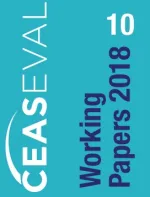National Report on Turkey: Patterns of Politicization on Refugees and Policy Responses

CEASEVAL Working Paper No. 10
Over the past few years, Turkey has become a major country of transit and destination for refugees and migrants, positioned as the largest host of refugees in the world, with more than 3.5 million Syrian citizens living in the country. Although the sharp increase in the number of refugees in the country has started in the aftermath of Syrian civil war in 2011, the politicization of this issue in the country has taken place at a later period, intersecting with the mass exodus of asylum seekers and migrants towards the European Union (EU) in the summer of 2015. This report analyses the politicization on the issue of the management of refugees (the so-called refugee crisis) by specifically focusing on the relations between Turkey and the EU. It looks into two periods, or “episodes of contention”, during which “responsibility sharing” was discussed. These periods were chosen due to the major events that have shaped the overall politicization of the management of migration and asylum in the context of the EU-Turkey relations: (a) May 2015 to March 2016, when the mass influx asylum seekers and irregular migrants of Syrian and other origins from Turkey to the EU has taken place, which was directly followed by the negotiations and the signing of a Statement between Turkey and the EU; and (b) March 2017 to September 2017, when Turkey’s bilateral relations with the EU and some of its member states has been strained, triggering renegotiations on Turkey’s candidacy in the Union as well as its involvement in the Custom’s Union. The report suggests that the salience of the politicization reached its peak point during the December 2015-March 2016 period, when the negotiations between Turkey and the EU have been very active, leading up to the March 2016 Statement. The analysis also illustrates that although there has been a consensus among the public opinion and representatives of the different political parties on the unequal sharing of responsibility between Turkey and the EU, there have been the emergence of a criticizing discourse by the opposition parties and human rights activists about how the AKP government managed the negotiations with the Union.